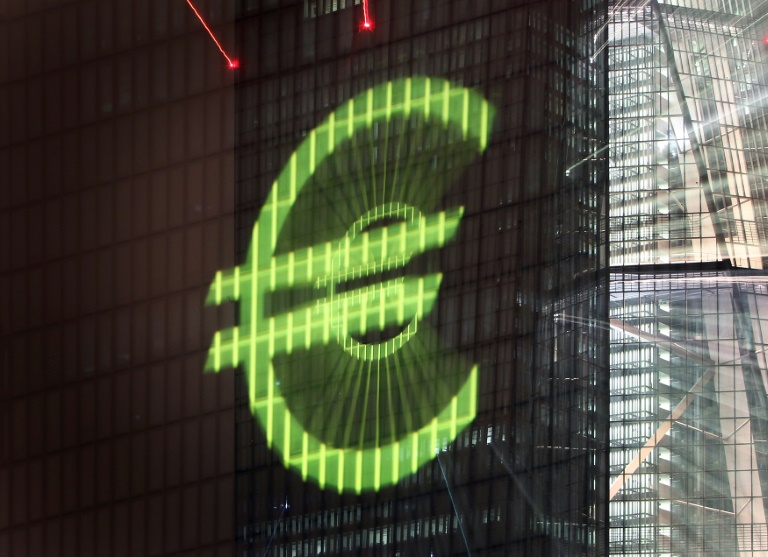-
Tips for becoming a good boxer - November 6, 2020
-
7 expert tips for making your hens night a memorable one - November 6, 2020
-
5 reasons to host your Christmas party on a cruise boat - November 6, 2020
-
What to do when you’re charged with a crime - November 6, 2020
-
Should you get one or multiple dogs? Here’s all you need to know - November 3, 2020
-
A Guide: How to Build Your Very Own Magic Mirror - February 14, 2019
-
Our Top Inspirational Baseball Stars - November 24, 2018
-
Five Tech Tools That Will Help You Turn Your Blog into a Business - November 24, 2018
-
How to Indulge on Vacation without Expanding Your Waist - November 9, 2018
-
5 Strategies for Businesses to Appeal to Today’s Increasingly Mobile-Crazed Customers - November 9, 2018
European Central Bank downgrades economic growth and inflation forecasts
Draghi has urged governments that have the money to invest more in infrastructure, and to cut back on red tape and regulatory permissions that make it harder to start a business.
Advertisement
Data showing that China’s imports unexpectedly rose in August for the first time in almost two years helped lend support to the Australian dollar, which edged up 0.2 percent to $0.7689.The Chinese trade data along with recent data showing a pick-up in manufacturing activity points to some improvement in China’s economy, said Steven Dooley, currency strategist for Western Union Business Solutions in Melbourne.”That basically adds to the evidence. that we’ve seen a pick-up in Chinese growth, which is good news for everyone”.
The European Central Bank held its record-low interest rates unchanged on Thursday (Sep 8), a spokesman said, as analysts expected the bank to wait for a clearer picture to emerge of the Brexit impact before making any drastic policy changes.
“Ultimately we have got to be patient”.
Interest rates are staying right where they are. “Interest rates have to be low today to be high tomorrow”, Draghi continued.
The FTSE 100 has pared gains after the European Central Bank (ECB) disappointed investors hoping for more stimulus action.
Draghi was questioned by reporters about the possibility of expanding quantitative easing but refrained from providing any hints.
Prior to the press conference, Draghi’s comments on this subject were hotly anticipated, however early in the conference he poured water on the possibility. He said that an extension of the asset purchase programme was not discussed at this month’s meeting. Draghi said “at the moment there are no substantial changes in forecasts that warrant our changing our action”.
The ECB slightly upgraded its euro zone growth forecast to 1.7 per cent from 1.6 per cent this year, but downgraded it to 1.6 per cent from 1.7 per cent for both 2017 and 2018.
Weekly net crude imports fell by about 1.8 million barrels a day, the EIA said. GDP growth is seen at +1.7% in 2016 (June: +1.6%), +1.6% in 2017 (+1.7%), +1.6% in 2018 (unchanged from June).
The bank left that earliest end date unchanged.
However the bank stopped short of confirming a specific extension of its 80-billion-euro monthly asset purchases, reaffirming its existing line that they would continue until next March or beyond if necessary.
Eurozone inflation – which the European Central Bank aims to maintain at just below 2.0 per cent – remains well shy of target, stuck at 0.2 per cent in August.
Advertisement
Earlier Thursday, the European Central Bank left all of its key interest rates unchanged, holding off on shifting its main policy levers, even as inflation in the 19-country currency bloc remains stubbornly low. In the next two meetings until year end the Governing Council may announce some limited changes of the APP parameters to ensure a smooth implantation of the program which are unlikely to push the euro lower.





























